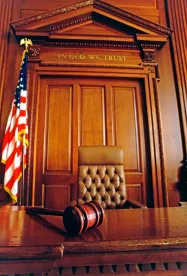In 2017, the U.S. Supreme Court held that disgorgement in an SEC enforcement action is subject to the five-year limitations period in 28 U.S.C. § 2462 that applies to an "action, suit or proceeding for the enforcement of a civil fine, penalty or forfeiture". Kokesh v. S.E.C., 137 S. Ct. 1635 (2017). Three years later, however, the Supreme Court held that "a disgorgement award that does not exceed a wrongdoer’s net profits and is awarded for victims is equitable relief". Liu v. S.E.C., 140 S. Ct. 1936 (2020). Yesterday, Nevada's Supreme Court tackled the question of whether a disgorgement judgment obtained by the British Columbia Securities Commission (BCSC) was a fine or penalty for purposes of Nevada's Uniform Foreign-Country Money Judgments Recognition Act, NRS 17.700-820. Lathigee v. British Columbia Securities Comm'n, 136 Nev. Adv. Op. 79 (2020).
The Nevada case arose from the BCSC's attempt to enforce a C$ 21.7 million disgorgement judgment that it had registered in a British Columbia court against Mr. Lathigee. The Nevada act requires recognition and enforcement of foreign-country money judgments. However, there is an exception to the extent that the judgment is a "fine or other penalty". NRS 17.740(2)(b). Mr. Lathigee argued that Nevada should not recognize the BCSC judgment because it constituted a "penalty".
The Nevada Supreme Court disagreed, noting that if the BCSC collects the judgment, it does not get to keep the money. Rather, British Columbia law provides for a notice and claim procedure for the BCSC to return moneys to the investors who were harmed. The Supreme Court viewed Kokesh as being limited to the statute of limitations context and Liu as counseling a case-by-case assessment of whether disgorgement constitutes a penalty. Neither case, however, controls the question of how the Nevada act should be interpreted.
Alternatively, the Nevada Supreme Court found that the BCSC's judgment should be recognized under the principle of comity.



 />i
/>i

